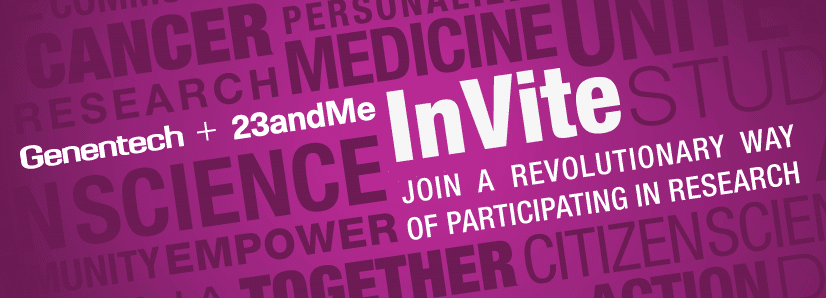
Many expensive clinical trials fail because the therapy causes harmful side effects in some or all participants or the drug isn’t effective across the board. Genetics may explain differences in response, but as of today DNA testing isn’t a standard part of clinical trials.
Integrating genetic testing into clinical trials should make it easier to determine why certain people benefit from a drug while others don’t. As the price of genetic testing drops, adding a simple test into an otherwise expensive and long process may also make the trial more efficient. Throw the Internet and other new technologies into the mix and speed and efficiency is further maximized.
The scenario goes something like this. A potential participant finds out about a trial through his or her doctor or online – anyone interested could receive alerts when a suitable trial opens. It’s been said that the biggest barrier to study completion is the shortage of people who take part and technology should be able to change this. Eligibility is confirmed by going to the trial website and answering a few simple questions.
About Clinical Trials
The goal of a clinical trial is to determine if a drug or other health intervention is efficacious and/or causes harmful side effects. Trials help ensure that only safe therapeutics are brought to market. Unfortunately this doesn’t always turn out to be the case since a number of drugs still end up being taken off the market after gaining FDA approval. For pharmaceutical companies, clinical trials are both expensive and time consuming. They cost anywhere between 100 and 800 million and take roughly five to nine years to complete once a drug enters Phase I testing in human subjects. The big kicker is that only one in five drugs end up with the stamp of approval – the rest fail at a high price tag.
The drug is administered to the patient through a physician, but instead of it being up to the physician to ensure compliance and gather outcomes, technology follows up. Participants receive text messages or email reminders to take the medication and are also asked how they’re feeling to see if the drug is affecting their quality of life. In addition to gathering data about survival, anti-cancer response and adverse events, it’s becoming increasingly important to find out if a therapy impacts quality of life.
Genetic data is collected easily with a saliva-based test – it’s mailed directly to the participant’s home, he or she spits, and then the test is popped back in the mail. When it comes time to analyze the results of the trial, the genetic information is layered upon other data points that are already routinely collected such as age, other diseases the person has, and life expectancy. Scientists look for possible associations between side effects and genetic factors while controlling for a myriad of other factors.
23andMe is already incorporating these ideas – utilizing technology and carrying out DNA testing – into drug studies. Our InVite study with Genentech is aimed at understanding how genes influence response to treatment for metastatic breast cancer. Participants find out about InVite through advocacy groups, social media sites, or their physician and enroll in the study online. They receive a saliva-based test in the mail and fill out online surveys about their experience taking bevacizumab, also known as Avastin ®. This drug is currently not approved by the FDA for treatment of metastatic breast cancer. 23andMe is actively recruiting participants and hopes to determine if a person’s genes could play a role in response to bevacizumab. Participants are not expected to directly benefit from this study.
(Women who began taking bevacizumab on or before December 31, 2011 are eligible for this study – see below for details.)
The example in this post represents a glimpse into the future of clinical trials, but also highlights the challenges ahead – therapies need to be targeted to the right people, technologies need to be tailored for data collection and genetic testing needs to be incorporated up front. With these changes trials should yield faster answers and won’t require as many participants. But the final goal is to arrive in a world of tailored therapy – where therapies are targeted based on the characteristics of both the disease and the individual patient to maximize the chances for success.
Research on the Genetics of Response to Treatment for Breast Cancer
23andMe and Genentech launched the InVite Study to understand how genes influence response to treatment for metastatic breast cancer. Visit https://www.23andme.com/invite-study/ or email invite-study@23andme.com for more information.

Potential findings of this study may help to determine if a person’s genes could play a role in how they respond to Avastin .